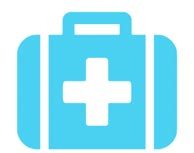 Hospital to Home Transitions Program
Hospital to Home Transitions Program
There are many benefits to healing at home. However, older adults and their families are often unprepared for the challenges that come with it. Therefore, Careplan’s RN’s and Licensed Social Workers ease those challenges, as well as make the day-to-day routine easier to manage so older adults can focus on the most important thing – getting better.
Why Should You Consider the Hospital to Home Transitions Program?
Half of Medicare patients who are re-hospitalized within 30 days haven’t seen a doctor during the entire month. This is according to a 2009 study in The New England Journal of Medicine of almost 12 million Medicare beneficiaries.
Patients forget up to 80 percent of what health-care providers tell them. Consequently, what they do remember is wrong almost half the time, according to a 2003 study in the Journal of The Royal Society of Medicine.
A study found that nearly 20 percent of people 65 and older on Medicare are readmitted within 30 days of their initial hospital discharge. (reported in The New England Journal of Medicine)
Nearly 20% of 30-day re-admissions, are likely preventable. In addition, hospital readmission rates are, in large part, influenced by other factors outside of the hospital domain. These include poor social support, poverty, and access to outpatient care. This is according to a study in the US National Library of Medicine National Institutes of Health.
References:
The New England Journal of Medicine
Journal of The Royal Society of Medicine
US National Library of Medicine National Institutes of Health
The Hospital to Home Program consists of: A total of 2-3 Geriatric Care Manager (GCM) visits to the senior’s home.
Bridget Ritossa, LSW, CMC, Careplan’s Hospital to Home Care Manager, worked for many years in hospitals and Rehab settings as a discharge planner. Bridget understands what’s necessary for success upon discharge.
- The first visit occurs at the Hospital prior to discharge. This allows Careplan’s Hospital to Home Geriatric Care Manager (GCM) access to the senior and their records. At this time, the GCM will set post-discharge goals alongside the hospital discharge record.
- The second and third subsequent visits occur in the home, with family present if able. At this time they review medications, discuss any barriers to care, as well as review the discharge plan of care. In addition, the GCM will check if follow-up appointments with physicians have been made.
- Home visits are scheduled at 60 minutes for the first visit and 30 – 60 minutes for the remaining visits. The senior is encouraged to make a list of questions or concerns to share with the GCM. During home visits, the Hospital to Home GCM will see if follow-up appointments have been made and transportation is in place. At this time, the GCM will check to see that prescriptions are filled and being taken as directed. Finally, the GCM will make recommendations for change and provide strategies to further ensure the senior’s safe transition from the Hospital.


 Hospital to Home Transitions Program
Hospital to Home Transitions Program